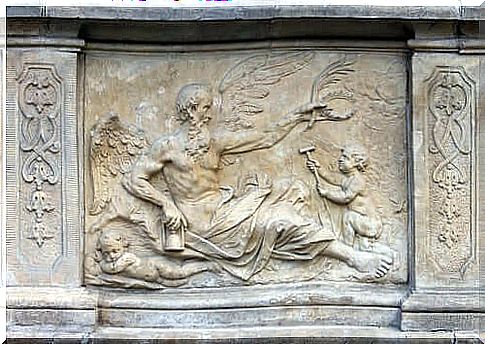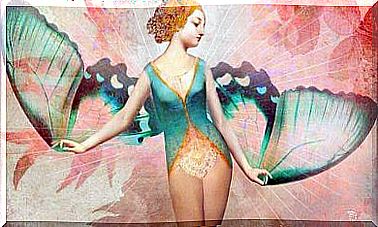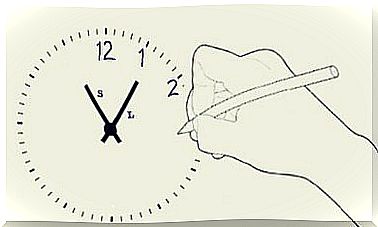The Myth Of Cronus, A Story About Fear

The myth of Cronus is one of the most cruel and significant of Ancient Greece. It tells a fascinating story which, as in many works where the imagination prevails, contains much more truth than fantasy. However, this truth does not refer to the events narrated, but to the way of exposing the unconscious reality of human beings.
Before starting to talk about it, it is worth remembering the importance of myths and dreams for psychoanalysis. While the latter reveals the unconscious reality of the individual, the myth would show the unconscious reality of a society.
While neither is real, when interpreted they are able to translate into the emotions, desires and fears that belong to the unconscious.
From this point of view, the myth of Cronus is one of the most interesting. It speaks of a terrible father figure, but also of the repressed wishes of the children to end his tyranny and finally be themselves. The mother, for her part, appears as the great ally who helps them achieve their goal.
The myth of Cronus
The myth of Cronus tells us about the dawn of time, the beginning of all that exists, from the point of view of Greek mythology. In the beginning there were Gaea, the Earth, and her husband Uranus, the sky. Uranus was the sole ruler of the entire universe. Uranus and Gaea had children, but these remained prisoners of the womb because the father did not want them to see the light.
Growing inside Gaea’s womb, they caused her terrible pains and convulsions, making her squirm with pain and jolts. Inside her, they never stopped fighting to be born and free themselves from that prison.
This led Gaea to harbor an immeasurable hatred for Uranus and began to think about how to get rid of him. She summoned her children and asked them to kill their father with a flint scythe, making them hostage to her hatred of her husband. However, only Cronus, the youngest, decided to grant his mother’s wish.
The myth of Cronus: between castration and patricide
Gaea laid a trap for Uranus: she made him believe that she would embrace him. It was the embrace between heaven and earth, between the world of ideas and primordial instinct. Uranus accepted, but at that moment Cronus grabbed the flint scythe and castrated him. The virile organ thus becomes a symbol of the power lost through castration.
From the blood shed by Uranus terrible creatures were born : giant beings, cyclops, monsters and demons, but also nymphs, which inspired wonderful works of art. Do these monsters represent the fears that haunt the human being when he physically or psychologically “gets rid” of the power of his father? And the nymphs, on the other hand, symbolize the possibility of creating something new when the father no longer imposes limits?
Gaea and Cronus were happy: Cronus took the place of his father and began to reign in the universe by marrying his sister Rea. The mother, who had the gift of prediction, knew that Kronos would also be betrayed by one of her children and let him know. The fear of being ousted and the insatiable thirst for power prompted Cronus to devour all his newborn children.
A cycle that repeats itself
Cronus and his brothers were imprisoned in their mother’s womb, while Cronus’s children were imprisoned in their father’s stomach, confined to a dark and cold world, hostages of a father afraid of losing his power. Rea, like Gaea before her, decided to rebel against this madness.
So, he devised a plan to get rid of Kronos with the help of his children, so history repeated itself. When his youngest son, Zeus, was born, Rhea had him hide. He gave Kronos some stones wrapped in paper, making him believe it was the child.
The god swallowed the stones. Meanwhile, Zeus grew up and carried out his mother’s will by giving his father a concoction that made him vomit all his brothers. After that Cronus was banished.
Conclusions
The myth of Cronus is a typically Oedipal story, especially if we analyze it from the point of view of psychoanalysis. But it also contains a beautiful metaphor, because Cronus symbolizes time, the time that devours everything. The time in which damage caused and received follows one another to come back and repeat itself. Time that forgives nothing.








